detail profile sergey migitsko
Peran Yang Di Mainkan Sergey Migitsko
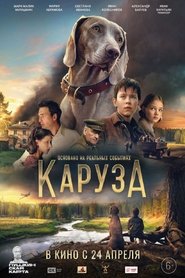 Based on true events this tale...
Based on true events this tale...Karuza 2025
Based on true events, this tale follows the extraordinary bond between a boy and his dog in besieged Leningrad. In 1939, young Mitya finds joy in the companionship of his loyal dog, Karuza. Their idyllic life is shattered when World War II erupts, plunging Leningrad into a brutal siege where starvation looms over its residents. As despair grips the city, Karuza with her keen instincts and unwavering courage ventures into the perilous streets to scavenge for food. Inspired by Karuza’s remarkable bravery, Mitya decides to join her. Together, they are forging a path through despair and hopelessness. However, their efforts take a dangerous turn when they are discovered by German soldiers during one fateful outing.
 The peoples favorite the countrys best...
The peoples favorite the countrys best...Fedya. People's Football Player 2024
The people's favorite, the country's best football player Fyodor Cherenkov, is not going through the best period in his life. The only thing that keeps him from despair is his dream of playing at the World Cup. But the head coach of the national team removes him from the team at the last moment. Fyodor is seriously thinking about retiring, but for the sake of his family and fans, he returns to lead his club to the championship and become the best again.
 Katya is completely disappointed in men...
Katya is completely disappointed in men...Is There No Such Thing As Love? 2024
Katya is completely disappointed in men, and Sasha can't live a day without a new woman. Chance made them neighbors who couldn't get along. Deciding to reform the self-confident womanizer, Katya uses all means to turn his life into a living nightmare. However, playing with fire can be expensive, because it's only one step from hate to love, even if you don't believe in love.
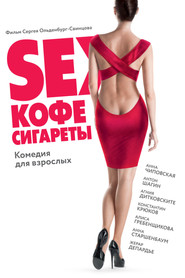 Eleven comedic vignettes featuring conversations some...
Eleven comedic vignettes featuring conversations some...Sex, Coffee, Cigarettes 2014
Eleven comedic vignettes featuring conversations – some important, some less so – held in restaurants over coffee and cigarettes (how quickly time flies – cigarettes are banned in Russia’s restaurants now). The conversations are candid, and even veer into the territory of murder. In the final credits, the director apologizes to Jim Jarmusch, whose work (in the anthology Coffee and Cigarettes, which Jarmusch shot in pieces over many years) Oldenburg-Svintsov is clearly indebted to. Sex, Coffee, Cigarettes’s kinship with Jarmusch’s film extends to the fact that superstars play tiny roles in almost all of the vignettes.
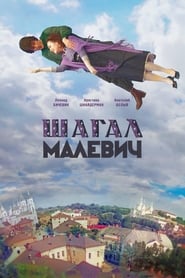 The film is an attempt to...
The film is an attempt to...Chagall-Malevich 2014
The film is an attempt to recreate the world of Marc Chagall and his myth within the genre of a folklore ballad. We are not exploiting Chagall's images, but are attempting to create a dramatized projection of his creativity onto the movie screen, relying on both, facts and fantasy (as Chagall himself would).The story is based on real events which occurred at the time of Chagall's short-lived period in Vitebskin in 1917-18, during which time he creates the Academy of Modern Art, inspired by his dreams of a bright and beautiful future. Many pictures by Chagall and Malevich are used in the film.
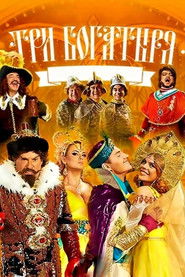 Ivan Tsarevich dreams of marrying Marya...
Ivan Tsarevich dreams of marrying Marya...Three Heroes 2013
Ivan Tsarevich dreams of marrying Marya the Weaver. But the Tsar has decided to marry his son to an overseas princess. Three heroes help Marya the Weaver in her fight for Ivan Tsarevich's love. They must complete the Tsar's task and bring him the feather of the Firebird. And the overseas princess turns to Baba Yaga for help.
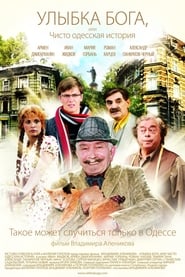 A determined student from Chicago is...
A determined student from Chicago is...God's Smile 2009
A determined student from Chicago is forced to fulfill the last wish of his ailing grandfather. He has to travel to Odessa, Ukraine, and bring back his grandfather's cat.
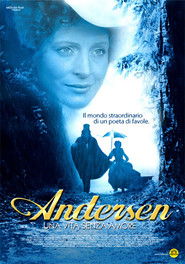 Drama based on life and love...
Drama based on life and love...Andersen. Life Without Love 2006
Drama based on life and love of a famous Danish writer Hans Christian Andersen.
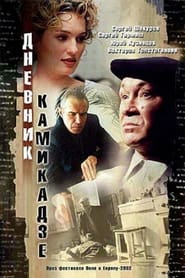 Vadim a young script writer is...
Vadim a young script writer is...Kamikaze Diary 2003
Vadim, a young script writer, is killed in Moscow. What's more, he had reached his height of popularity a long time ago. His friend, successful businessmen Maksim Krivoshein, begins his own investigation. Memories of their childhood and the chance discovery of Vadim's diary leads to some shocking discoveries.
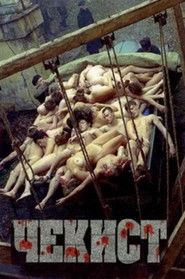 Srubov is a part of CHEKA...
Srubov is a part of CHEKA...Chekist 1992
Srubov is a part of CHEKA, the secret police Lenin established after the Bolshevik Revolution. They arrest, interview for a minute, try in ten seconds, and execute intellectuals, aristocrats, Jews, clergy, and their families. In the building basement, five people at a time are shot as they stand naked facing wooden doors. No one to remember their last words; no martyrs, just anonymous bodies. Daily, the kangaroo court, the executions, the loading of bodies onto wagons. Srubov is cold, distant, sexually dysfunctional, and a deep thinker, hated by former friends and his family. As he tries to reason the nature of revolution and the purpose of CHEKA, he slowly goes mad.
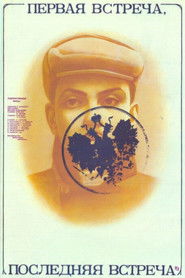 The story concerns the events in...
The story concerns the events in...First Encounter - Last Encounter 1987
The story concerns the events in Saint Petersburg on the eve of the First World War. Private detective Petya Chukhontsev, a law student who has not completed his studies, investigates the case of the murdered inventor Kuklin. He was murdered exactly as he predicted during a New Year's visit to Chukhontsev. While investigating the Kuklin case, Petya soon realizes that the central figure in this case is the German Scholz, the owner, who cheaply buys up the inventions of Russian craftsmen and hands them over to the spy Siegfried Gay, an advisor to the German embassy. . However, Petya will soon understand that it is better to mind his own business...
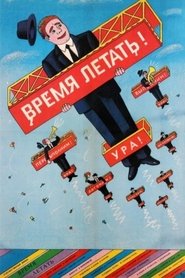 Nothing like this has ever happened...
Nothing like this has ever happened...Time to Fly 1987
Nothing like this has ever happened and could not happen in any of the airports. However, according to the authors of the film-parable, this tragicomic story is directly related to reality. It turns out that in order to properly fly airplanes, sometimes it is enough to fly to one chief. Of course with his seats. However, it does not prevent that the passengers themselves are very eager to go on a flight…
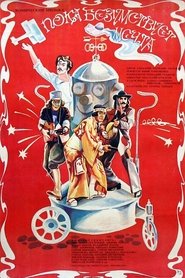 Yura Otvertkin a romantic from TsarevoKokshaisk...
Yura Otvertkin a romantic from TsarevoKokshaisk...While the Dream is Mad 1978
Yura Otvertkin, a romantic from Tsarevo-Kokshaisk, is obsessively in love with aeronautics. In St. Petersburg, disguised, he pretends to be the ace Ivan Piramida. He has to perform at the festival, but he only knows how to fly "according to the books", but he manages not to lose face. After a lot of ups and downs associated with his similarity in makeup with a famous criminal, Yura confesses everything to his beloved and flies already under his real name.
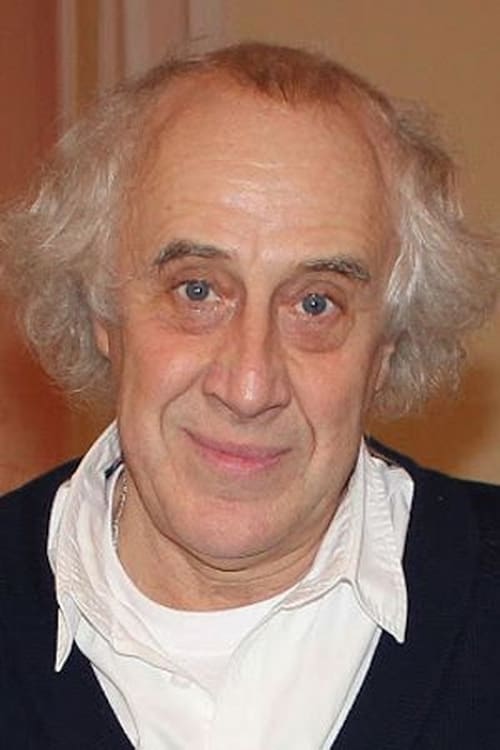
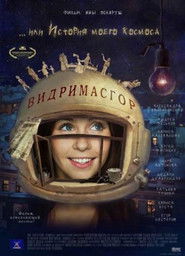
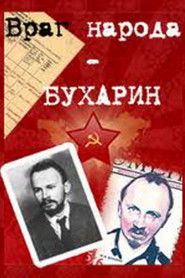
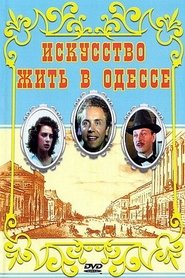 The plot of the movie is...
The plot of the movie is...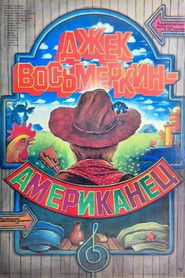 Jack Vosmyorkin young American with Russian...
Jack Vosmyorkin young American with Russian...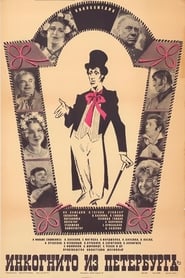 A comedy based on a classic...
A comedy based on a classic...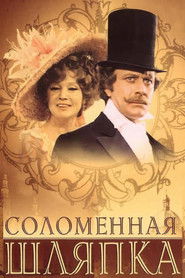 A musical comedy based on the...
A musical comedy based on the...